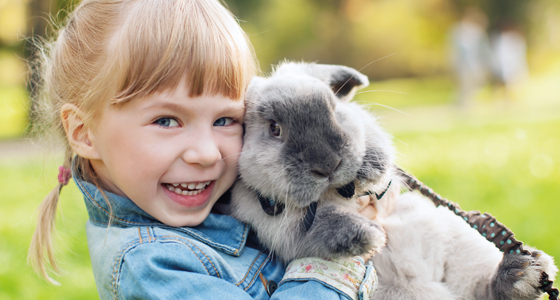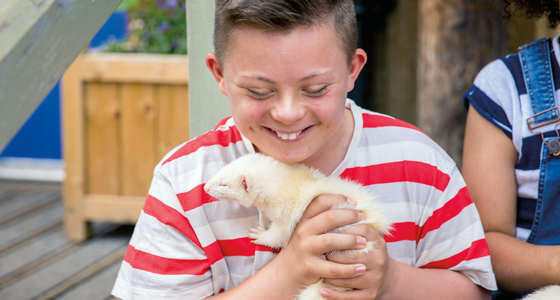Believe it or not, your pets can develop many of the same dental issues as humans. They experience tooth decay and gum disease, but obviously can’t do much about it on their own. Use these facts about common pets and their oral health needs to help you take care of your furry and scaly friends!
What you didn’t know about your pet’s oral health
Bad breath isn't normal for cats and dogs.
Mouth odors could be an early sign of painful dental problems, such as gingivitis and gum disease.
Gum disease is the most commonly occurring disease in pet cats and dogs, since most owners don’t brush their pets’ teeth. By age 3, 80% of dogs and 70% of cats show signs of dental disease.
Get approved treatments.
The Veterinary Council of Oral Health is a professional organization that authorizes the safety and effectiveness of oral health treatments for cats and dogs. Look for their approval seal on things like toothpaste or oral chews to make sure they’re effective for your pet!
Ferrets often break or chip their fangs by chewing on hard objects.
They love to chew on wire cages and occasionally break or chip their teeth while doing so. If a tooth is broken or chipped, take your ferret to the vet to prevent infection!
Ferrets have a whopping 40 teeth. That’s eight more than humans but thousands fewer than sharks!
Talk to your veterinarian.
Your vet can tell you if your pet needs home treatments or a professional cleaning.
Bad breath or change in appetite can be signs of oral health problems in most species, so if you notice something seems wrong, take your pet to the veterinarian for a thorough checkup.
With all species, preventive care is the best way to avoid tooth decay or gum disease, so remember to take care of your pet’s oral health to keep them happy and healthy!
Why do astronauts have great teeth?
Untreated conditions can keep astronauts on Earth, so taking care of their teeth is a top priority.
This healthy ice cream alternative is delicious and easy to make
Stay cool this summer with smile-friendly banana-berry ice cream.
A workout for your brain
Just like you exercise at the gym, you can exercise your mind to make it healthier and stronger. Learn more.














